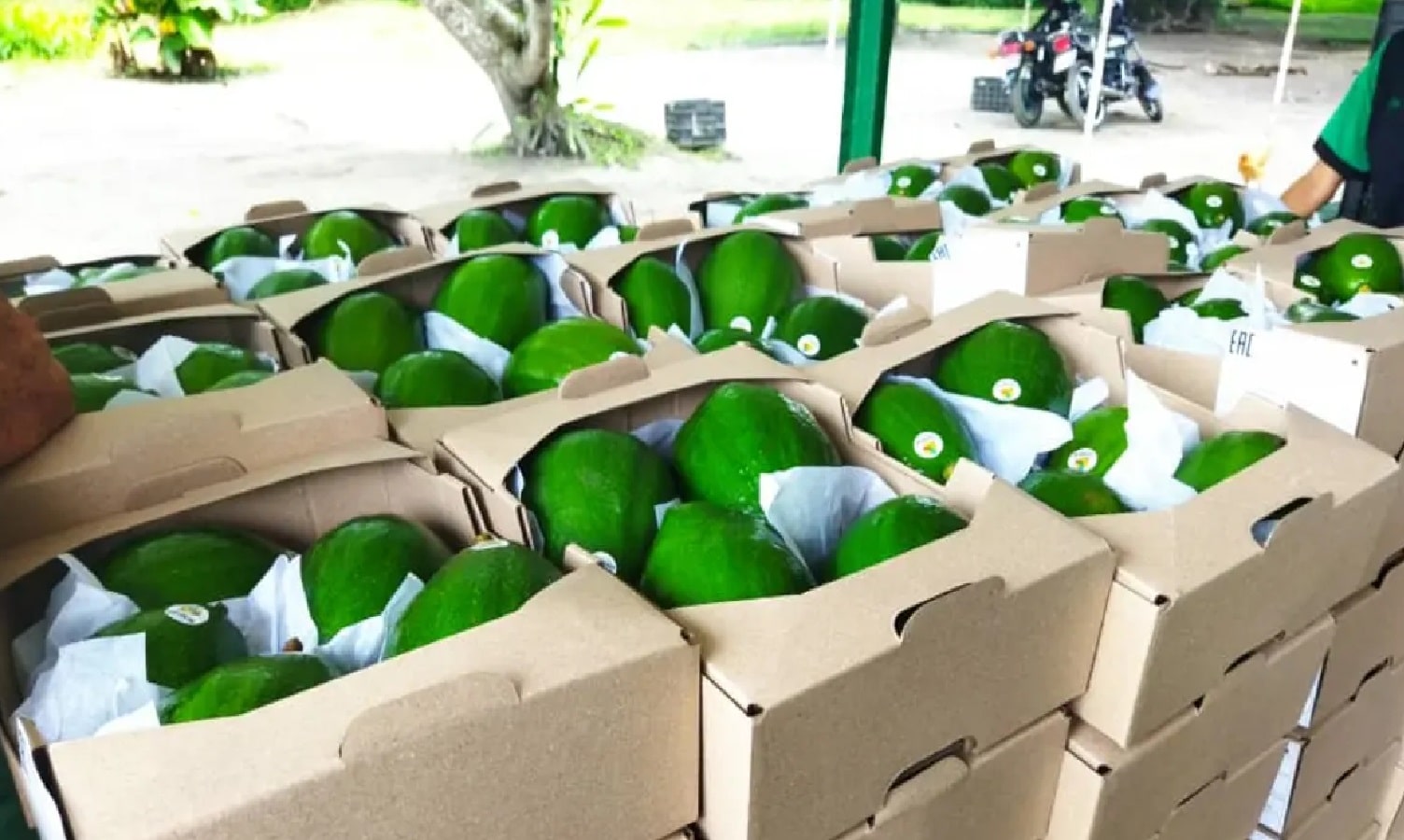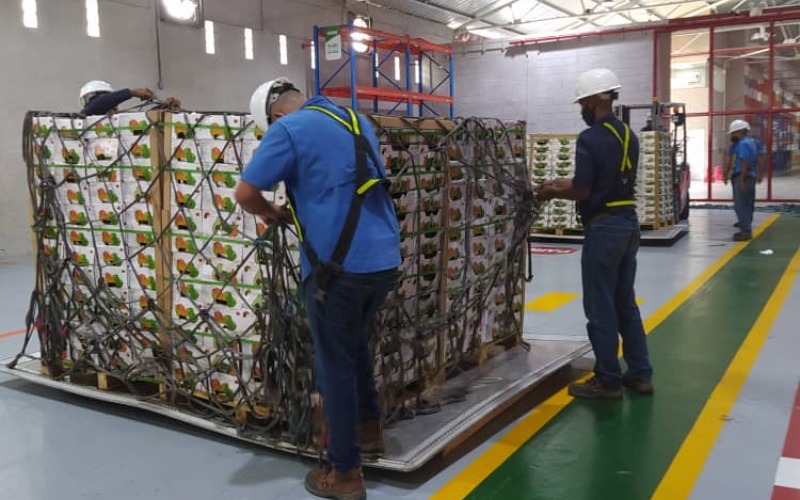
First shipment of Venezuelan avocados delivered to Russia. Photos: Aguabas.

Orinoco Tribune – News and opinion pieces about Venezuela and beyond
From Venezuela and made by Venezuelan Chavistas

First shipment of Venezuelan avocados delivered to Russia. Photos: Aguabas.
This Saturday, September 3, the first shipment of tropical fruits from Venezuela arrived in Moscow in a cargo flight from the Venezuelan Consortium of Aeronautical Industries and Air Services (Conviasa) by the company Caribbean Plus in cooperation with the Association of Avocado Growers of the Aristides Bastidas Municipality of Yaracuy State, (Aguabas). This shipment was made possible thanks to the support of all the personnel of Conviasa’s Export Management, Conviasa’s Cargo Management, the customs authorities, the Bolivarian National Guard of Venezuela, the Ministry of Agriculture and Lands of Venezuela and the engineers Giorvelis Molina and Yessenia Colmenares of the Institute of Plant Health. This initiative is the result of the work, effort and commitment of a number of small farmers and their families who, despite the difficulties, have not stopped believing in Venezuela’s economic recovery, although the road ahead is still long and not without its pitfalls.
The 5 thousand kilos of avocados received at Vnukovo International Airport in Moscow, Russia, by the company Tropiki-Plus, belong to the Choquette variety, 6 and 8 inch in caliber, all produced and harvested in the state of Yaracuy, a region located in the north-central part of Venezuela. These fruits will be marketed in Russian wholesale and retail markets and restaurants of the highest level, after having passed all the corresponding phytosanitary controls.

Sustainable organic agriculture
Both Aguabas, Caribbean Plus and Tropiki-Plus are based on an entrepreneurial model in which sustainable family agriculture seeks to satisfy human needs without harming the environment and therefore without penalizing the life of future generations. In addition, all the companies and families involved work under the principles of cooperation, solidarity, eliminating from the production chain any type of labor or economic exploitation and always respecting the search for collective benefit.
It is important to note that Aguabas complies with all international certifications that include strict parameters such as care for the environment and biodiversity, health, safety and welfare of workers, integrated crop and pest management and strict quality management systems. In addition, this association is a pioneer in the control and monitoring of fruit flies and Aguabas’ president, Maxwell Piña, is a member of the national fruit fly control commission. It is worth mentioning that the State of Yaracuy is free of this quarantine pest, considered as such because it generates negative effects on production and is under official control. Aguabas works entirely at a natural, organic level; they do not use chemicals or synthetics and use the trapping method to monitor the appearance of the fruit fly. This year they have carried out twelve fumigations though natural means and the use of biofertilizers.

Aguabas has 170,000 avocado trees planted on 17,000 hectares nationwide, which annually produce approximately 20,000 tons throughout the Arístides Bastidas Municipality. The association is the leading state-level producer of avocados, the largest percentage of which is marketed within Venezuela. The Aguabas avocado association, Caribbean Plus and Tropiki-Plus form a strategic alliance that emphasizes the entire avocado production chain, packaging, internal export and import logistics and direct marketing to potential customers in Russia, which allows the offering of high quality fresh fruit, long shelf life and affordable final prices.
Venezuela Expands Meat Production for Exports, Says President Maduro
An expanding market
In 2021, 54 thousand tons of fresh avocados were imported to the Russian Federation, and according to statistical data from East Fruit, in the last five years, the volume of avocado imports to Russia has multiplied. Likewise, the average per capita consumption in the Russian territory is about 0.37 kg per person; if we add to this data the impact of the sanctions that the United States and its allied countries have imposed on Russia and the impossibility of importing from several producing nations, all this makes the Russian market an important place for investment.
The beginning of exports from Venezuela, headed by these small companies, is a real example of the economic recovery of the country, they are not only statistical data or projections, they are concrete facts, but at this crucial moment they need the support and the impulse of the authorities so that the progress and consolidation of the Venezuelan agricultural production for export is truly solid and irreversible at international level.
Special by Yoselina Guevara
YG/OT

Venezuelan professor. Correspondent for Correo del Alba Magazine in Europe. Her articles have been published in Spanish, Italian and English by different news outlets in Europe (Rebelión, Ideología Socialista, Libya 360, etc) as well as in Latin America (Cubadebate, Redh-Cuba, Redh-Argentina, Portal Alba, Transformar Argentina, Resumen latinoamericano in English, Orinoco Tribune, Quinto Poder Argentina, etc).